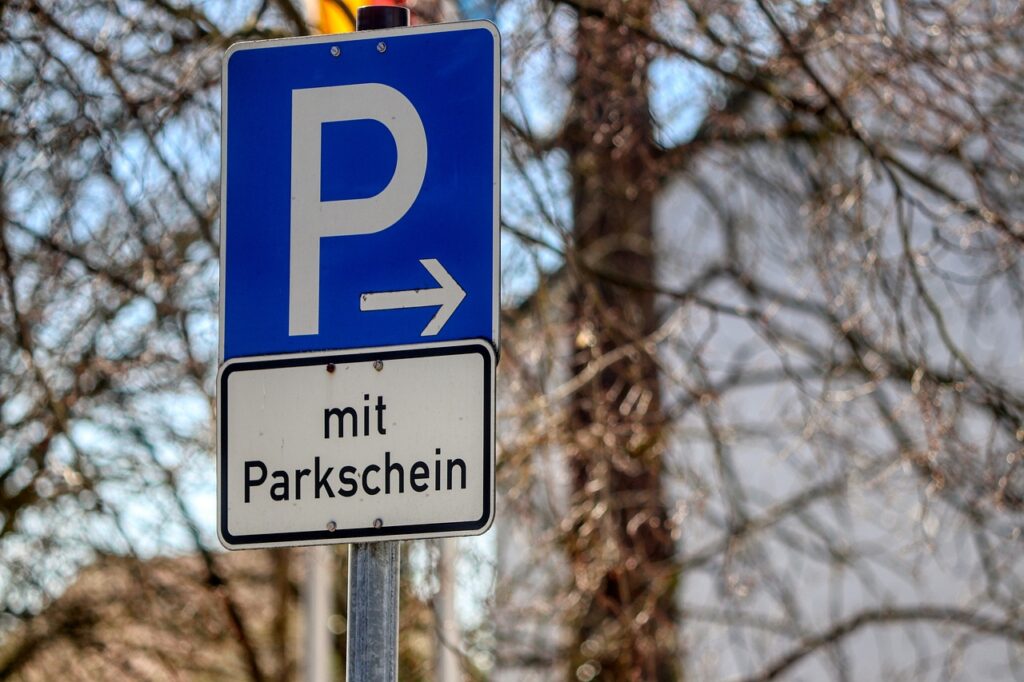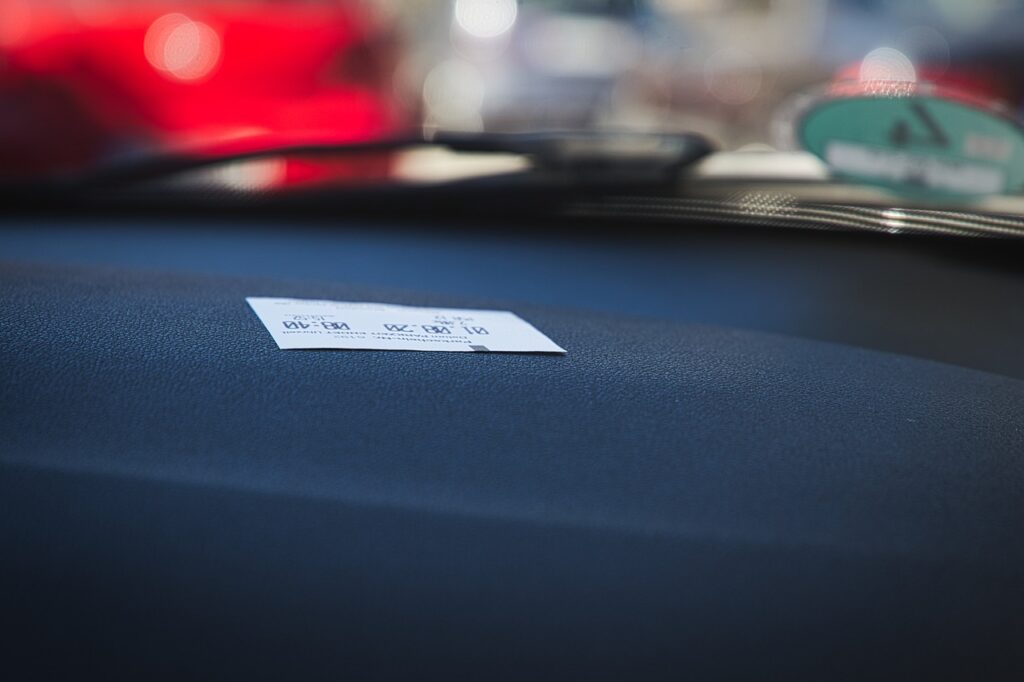
Parking tickets. They often feel like a minor inconvenience, a frustrating slip of paper tucked under your wiper. Most drivers see them as just another fee, a nuisance that can be paid off and forgotten. But what if these seemingly harmless violations held a hidden power, capable of escalating into something far more severe? While a single parking ticket might not directly suspend your driver’s license, a combination of factors – particularly unpaid fines and ignored administrative actions – can indeed put your driving privileges at serious risk.
Understanding this complex interplay between minor infractions and major consequences is absolutely crucial for every driver. It’s about being informed, empowered, and proactive rather than facing unexpected penalties. The world of parking enforcement and license regulations can be confusing, but gaining insight into this topic is key to maintaining a clean driving record.
This comprehensive guide will break down the critical pathways through which parking tickets and other related traffic violations can lead to a suspended license. We’ll explore the specific triggers, the legal nuances, and the administrative processes involved, equipping you with the knowledge to navigate this often confusing landscape and protect your ability to drive legally. Let’s delve into these essential points, starting with some significant changes and key offenses.
1. **The Shift in California Law: Unpaid Tickets Alone (No More Suspension)**For many years, the system in California was straightforward, though undeniably harsh. If you accumulated unpaid traffic tickets and fines, the California courts would report these delinquencies directly to the California Department of Motor Vehicles (DMV). Once notified, the DMV would then proceed to suspend that person’s driver’s license, creating a direct and often debilitating link between an unpaid fine and the loss of driving privileges.
However, this is not the case anymore. A significant legislative change occurred in 2017 when the California Legislature passed Assembly Bill 103 into law. This landmark legislation fundamentally altered the process by stripping state courts of their authority to notify the DMV of a driver’s failure to pay a fine or traffic ticket. Without this crucial notification, the DMV is legally unable to suspend a driver’s license solely on the basis of unpaid tickets.
The motivations behind this legal reform were two-fold. Firstly, it was recognized that the practice of license suspension did not effectively help the state in its primary goal of collecting unpaid fines. The suspension itself often compounded the problems without achieving its intended revenue-generating purpose. Secondly, and perhaps more significantly, the license suspension was found to have a disproportionately negative impact on low-income individuals, frequently leading directly to job loss.
It is absolutely vital to understand the precise scope of this change: Assembly Bill 103 only stops the DMV from suspending your license *solely* for unpaid tickets. It does not mean that other violations or failures to comply with court orders are off the hook. This distinction is paramount, as other serious offenses, as we will explore, can still very much lead to a license suspension.

2. **Criminal Offenses Beyond Fines: Direct Triggers for License Suspension**While simply having an unpaid traffic ticket may no longer trigger an automatic license suspension in California, there are numerous criminal offenses that can most certainly lead to your California driver’s license being suspended. These are not mere financial infractions but serious violations of the law, carrying direct and immediate consequences for your driving privileges. Understanding these distinctions is crucial for all drivers, as they represent a different category of risk.
One of the most widely recognized and severely penalized criminal offenses that can lead to a license suspension is driving under the influence (DUI) of alcohol or drugs. This offense, which impairs a driver’s ability to operate a vehicle safely, is treated with extreme gravity due to the inherent danger it poses to public safety. A DUI conviction almost invariably results in a suspension of driving privileges, often accompanied by substantial fines, mandatory education programs, and potential jail time.
Beyond DUI, other specific criminal offenses also carry the weight of potential license suspension. Vandalism, for instance, can be a surprising trigger for the loss of driving privileges. While not directly related to the act of driving itself, certain criminal convictions demonstrate a disregard for the law that can impact one’s suitability for holding a driver’s license. These examples underscore that the state views a driver’s license not just as a privilege, but as an endorsement of responsible conduct.
It is interesting to note how laws evolve regarding these criminal offenses. For instance, it used to be the case that engaging in prostitution could lead to a license suspension, specifically if the act was conducted in a motor vehicle and within 1,000 feet of a private residence. However, this particular statute was repealed in 2020 by Senate Bill 485 (2019), demonstrating that what constitutes a suspendable offense can change over time.
3. **The Point System: How Accumulating Too Many Points Can Suspend Your License**Beyond specific criminal offenses, another significant pathway to license suspension is through the accumulation of too many driving record points. Many criminal moving violations, even if they don’t immediately lead to suspension on their own, contribute points to your driving record. These points act as a cumulative measure of a driver’s history of unsafe or unlawful driving behavior, and reaching certain thresholds can brand you as a “negligent operator,” triggering administrative action from the DMV.
Consider reckless driving, for example, which is classified as a criminal moving violation. A conviction for reckless driving typically adds 2 points to your driving record. While a single instance might not cause an immediate suspension, these points quickly add up. The system is designed to identify and address patterns of risky driving behavior over specified periods, ensuring that habitual offenders face appropriate consequences to protect public safety on the roads.
The thresholds for being deemed a negligent operator are clearly defined, providing drivers with a precise understanding of when their license is at risk. Your license will be suspended if you accumulate: 4 points in a 12-month period, 6 points in a 24-month period, or 8 points in a 36-month period. These distinct timeframes mean that even seemingly minor infractions, when compounded over time, can lead to the serious consequence of losing your driving privileges.
For those facing these point accumulations, there are typically avenues for remediation. You may be required to complete traffic school, which can sometimes help mitigate point accumulation or serve as a condition for reinstatement. Additionally, a license reinstatement fee usually needs to be paid to restore your driving privileges. In certain circumstances, individuals may be eligible for a restricted license during the suspension period to maintain employment, highlighting the importance of seeking legal advice from a reputable traffic ticket attorney.
4. **Willfully Failing to Appear in Traffic Court: The Misdemeanor with Severe Consequences**One of the most direct and potent triggers for a driver’s license suspension, even when the initial offense might seem minor, is willfully failing to appear in court for a traffic ticket. This isn’t merely an administrative oversight; it’s classified as a misdemeanor crime in many jurisdictions, carrying significant penalties beyond just the original ticket. It represents a direct defiance of a court order and, as such, is treated with serious legal repercussions.
Prosecutors must establish several key elements to secure a conviction for willfully failing to appear. They have to prove that you received a traffic citation, signed a written promise to appear in court for that citation, and willfully failed to appear on your designated court date. You behave “willfully” when you fail to appear willingly or on purpose; it is not necessary for you to intend to break the law, hurt someone, or gain any advantage.
A critical point to grasp is that the underlying ticket itself is not an element of the offense of failing to appear. You can be found liable for willfully failing to appear even if the traffic ticket is later dismissed or found to be groundless. The crime lies in the failure to fulfill the promise to appear, irrespective of the ultimate validity of the initial citation. This emphasizes the importance of always addressing a court summons.
However, not every failure to appear is a crime. There are legitimate excuses that can negate the “willful” element. For instance, if your absence was not willful, if you never signed an agreement to appear in court, or if you were kept from appearing in court in person by an emergency, these could be valid defenses.
The penalties for a conviction for failing to appear in court are substantial, reflecting the seriousness of non-compliance. These can include fines of up to $1,000, and/or up to 6 months of jail time in a county jail. Additionally, a hold can be put on your driver’s license, which is a delayed suspension. When the court notifies the local DMV of your willful failure to appear, the DMV will notify you of the pending suspension, which goes into effect after a 60-day waiting period and continues until the failure to appear has been rectified. This hold and potential suspension only occur for violating the statute prohibiting the willful failure to appear, such as California Vehicle Code 13365 VC.

5. **Driving on a Suspended License: Escalating Penalties**Should your driver’s license be suspended for any reason—whether due to criminal offenses, excessive points, or a willful failure to appear in court—it is absolutely critical to understand the severe implications of continuing to drive. Operating a motor vehicle when your license is suspended is not a minor infraction; it is itself a misdemeanor offense, carrying significant legal and financial repercussions. This can easily compound your problems, turning an already difficult situation into a much worse one.
The penalties for a conviction for knowingly driving on a suspended driver’s license are quite serious, designed to deter individuals from ignoring their suspension. These can include fines of up to $1,000, and/or up to 6 months in jail. These are not trivial sums or inconveniences; they represent substantial legal consequences that can deeply impact your financial stability and personal freedom. The legal system takes the integrity of driver’s license suspensions very seriously, viewing unauthorized driving as a direct challenge to its authority.
Beyond the immediate legal penalties of fines and potential jail time, there are other significant practical consequences. If you are caught and convicted of driving on a suspended license, your car insurance premiums are highly likely to increase substantially. Insurers view such a conviction as a major indicator of high risk, leading to elevated rates or even the cancellation of your policy altogether, making the cost of driving legally far more expensive for years to come.
6. **Accumulation of Unpaid Parking Tickets: The Core Problem and Its Escalation**While we’ve noted that in California, unpaid traffic tickets alone no longer lead to direct license suspension, the overarching issue of accumulating unpaid parking tickets remains a significant concern in many jurisdictions and can still indirectly lead to the loss of your driving privileges. Parking tickets are a common nuisance, often dismissed as minor infractions. However, the situation can escalate considerably if these fines go unpaid or accumulate over time, setting in motion administrative actions that can affect your driver’s license status.
The underlying principle across various states and municipalities is that unpaid fines, including those from parking violations, become a liability that the state enforces. While a single unpaid ticket rarely results in suspension, repeated nonpayment can trigger these enforcement actions. This mechanism encourages timely payment and compliance, ensuring that municipal services are not undermined by widespread disregard for parking regulations.
When parking tickets remain unpaid for a certain period, local or state authorities may notify the Department of Motor Vehicles (DMV). This notification is a critical step in the escalation process. Once the DMV receives this information, it typically places a hold on the driver’s record. This administrative hold is a significant flag, indicating unresolved issues tied to the driver’s compliance, and it remains active until outstanding fines and fees are settled.
The process then moves towards a formal suspension. The DMV, empowered by state regulations, will issue a suspension notice to drivers who have failed to pay outstanding parking fines within a specified period. If the driver does not resolve these outstanding fines or contest the tickets within the given timeframe, the DMV will proceed to suspend the driver’s license until the issue is cleared. The threshold for suspension varies significantly by state and locality, with some requiring multiple tickets or a minimum fine amount.

7. **Ignoring Notices and Administrative Fees: Why Inaction Fuels the Path to Suspension**Beyond the mere accumulation of unpaid parking tickets, specific actions—or inactions—can significantly fuel the fire, escalating the problem and accelerating the path to license suspension. Among the most critical of these is the failure to respond to notices and the mounting burden of unpaid administrative fees. These elements, often overlooked by drivers, play a pivotal role in transforming a simple parking infraction into a serious threat to one’s driving privileges.
When parking tickets are issued and subsequently ignored, authorities don’t simply forget about them. Instead, a series of notices and reminders are typically sent to the vehicle owner. However, consistently ignoring these reminders or citations, allowing them to pile up, is a direct pathway to escalation. This inaction signals non-compliance and pushes the issuing authority to refer the matter to higher administrative bodies, such as the Department of Motor Vehicles (DMV).
Furthermore, the financial burden of parking tickets doesn’t remain static. Additional fees are frequently imposed for late payment or for the processing of delinquent accounts. These unpaid administrative fees can quickly increase the total amount owed, often substantially. What might have started as a relatively minor fine can balloon into a significant financial liability due to these added charges.
For example, “additional fees imposed for late payment or processing can increase the total amount owed.” This highlights a clear mechanism by which inaction financially exacerbates the situation. This, combined with the steadily increasing cost from unpaid administrative fees, creates a compelling case for authorities to move forward with more severe enforcement actions, including the suspension of a driver’s license. Proactive engagement, even if it’s just to understand the fees or explore payment options, is a far wiser strategy.
Navigating the complexities of parking tickets and their potential to impact your driving privileges requires more than just knowing the initial triggers. Understanding state-specific nuances, the precise administrative thresholds, and how to proactively manage and resolve outstanding issues is equally vital. The journey from a simple parking infraction to a suspended license is often a bureaucratic one, filled with specific steps and opportunities for resolution if you know where to look and what to do.
Now, let’s explore these crucial aspects, moving from broader state variations to practical, actionable steps for prevention and reinstatement.

8. **State-by-State Variations: Understanding How Local Laws Impact Your Driving Privileges**It is crucial to recognize that the rules governing parking ticket enforcement and their impact on your driver’s license are far from uniform across the United States. Traffic laws and enforcement procedures differ widely, meaning that what might be a minor issue in one state could pose a significant threat to your driving privileges in another. Understanding these local regulations is key to avoiding unexpected license suspensions.
Many jurisdictions have varying policies, with some states employing stricter measures regarding unpaid parking fines than others. For example, the `Context` information notes that California might trigger a suspension for unpaid tickets exceeding $100 or a failure to appear, while New York might do so for two or more unpaid tickets outstanding for over 120 days. These distinct thresholds and timelines underscore the fragmented nature of these laws.
Conversely, some states adopt a more lenient approach when it comes to parking violations affecting licenses. Texas, for instance, explicitly states that unpaid parking tickets result in fines and fees only, with no direct license suspension. This stark contrast highlights the importance of familiarizing yourself with the specific regulations in your state or even municipality, as some areas may initiate suspension after a single unpaid ticket, while others require multiple tickets or a minimum fine amount.
The table provided in the `Context` further illustrates these differences: Florida might suspend for multiple unpaid tickets with outstanding fines, potentially leading to vehicle immobilization, while Illinois mandates suspension for unpaid tickets exceeding $250. These examples reinforce the necessity of local knowledge to safeguard your driving status effectively.
9. **The Suspension Threshold: When Unpaid Fines Trigger Administrative Action**Every driver should be aware that there’s typically a specific point at which accumulated unpaid parking fines cease being merely a financial nuisance and instead trigger serious administrative actions, including potential license suspension. This is often referred to as the “suspension threshold,” and identifying these specific financial or numerical criteria is paramount to preventing a lapse in your driving privileges.
Across many jurisdictions, the accumulation of three to five unpaid parking tickets can be the critical point that initiates the suspension process. Once this threshold is reached, some areas require local municipalities to formally notify the Department of Motor Vehicles (DMV) of the outstanding debts. This notification serves as a critical first step in the administrative process, often followed by a grace period during which you can still pay or contest the tickets before a suspension takes effect.
It’s not just the number of tickets that matters; the total amount owed can also be a deciding factor. For instance, the `Context` mentions that in California, an unpaid parking ticket exceeding $100 could be a trigger, while in Illinois, the threshold is unpaid tickets over $250. These financial benchmarks mean that even fewer tickets, if they carry substantial fines, can quickly push you past the administrative tipping point.
The critical takeaway here is that once the DMV receives notification of unresolved parking fines and you fail to address them within a specified period, it can be legally empowered to issue a suspension notice. This direct link between persistent non-payment and administrative action underscores why it’s vital to understand the precise triggers in your locale and act promptly when faced with accumulating parking violations.

10. **Receiving a Formal Notice of Suspension: What to Expect and How to Respond**When you’ve crossed the administrative threshold of unpaid parking tickets, the next significant step in the process is typically the arrival of a formal notice of suspension. This is not just another reminder; it’s an official communication from the DMV or a related authority, indicating that your driving privileges are at risk or will soon be revoked. Understanding what this notice entails and how you should respond is critical.
These formal notices are meticulously designed to provide you with essential information. They typically include a clear breakdown of the total amount owed, specifying the number of unpaid tickets that have led to this action, and crucially, the exact date your license suspension is scheduled to begin. Such details ensure you are fully informed about the impending consequences and the reasons behind them.
Beyond just detailing the problem, the suspension notice should also clearly explain your rights and available options. This might include information on how to contest the fines, such as outlining the process for requesting a hearing to present your case. These notices are generally sent via certified mail, a method chosen to ensure verifiable delivery and to establish a clear timeline for you to resolve the issue before the suspension becomes active.
Many jurisdictions are moving towards more accessible administrative processes, with some now offering online portals where drivers can review the specific details of their outstanding tickets and even initiate payments to settle fines. Regardless of the delivery method, receiving such a notice is a definitive signal that immediate action is required. Ignoring this formal communication will almost certainly lead to the suspension taking effect, exacerbating the problem.
11. **Navigating Administrative Proceedings: Your Right to Contest and Resolve Issues**Receiving a formal notice of suspension can be daunting, but it doesn’t mean your fate is sealed. Drivers have fundamental rights to contest and resolve issues through proper administrative channels, and understanding how to navigate these proceedings is crucial for preventing or lifting a license suspension. This includes exercising your right to due process and engaging in hearings.
Should you believe a ticket was issued in error, or if you have mitigating circumstances, you have the right to request a hearing. During these administrative proceedings, you can present evidence, such as proof of payment if you believe the fines have been settled, or articulate disputes regarding the validity of the tickets. An administrative law judge or a designated hearing officer will then evaluate your case, determining whether to uphold the suspension, dismiss it, or establish a more manageable payment plan.
Key legal considerations protect you throughout this process. You are entitled to adequate notice from the DMV or court before any license suspension takes effect. This ensures you have sufficient time to prepare your defense or arrange for payment. Furthermore, some states offer an “opportunity to cure,” which is essentially a grace period or a requirement for payment arrangements to be made before a full suspension is imposed.
Proactive engagement with the authorities is a powerful tool. If you’re facing financial hardship or simply need clarification on the process, communicating directly with the DMV or the court can be incredibly beneficial. Seeking guidance can help clarify your specific situation, explore options like installment plans, and ultimately prevent the suspension from taking hold. Remember, active participation in these proceedings is your best defense.

12. **The Real-World Cost: Impact of License Suspension on Employment and Daily Life**Losing your driving privileges due to accumulated parking tickets extends far beyond the inconvenience of not being able to drive; it carries significant real-world economic and practical consequences that can deeply impact your employment and daily life. A suspended license can quickly turn a bad situation into a truly challenging one, highlighting the importance of prevention and prompt resolution.
For many individuals, a valid driver’s license is directly tied to their livelihood. Professions such as delivery services, rideshare driving, trucking, or any job requiring the operation of a company vehicle depend entirely on an active license. A suspension can lead directly to job loss, or at the very least, unpaid leave, creating immediate financial instability. Employers are often required to verify driving statuses, and a suspension typically results in serious employment repercussions.
Beyond the workplace, the loss of driving ability severely disrupts everyday responsibilities. Commuting to work or school becomes a complex logistical challenge, potentially requiring expensive alternatives like public transportation or ride-sharing services, if available. Attending critical medical appointments, managing family obligations like childcare or elder care, and even simply grocery shopping can become incredibly difficult, eroding independence and adding stress.
A suspended license can also worsen existing financial difficulties. The initial parking fines, along with late fees and interest, may continue to accrue, increasing the overall debt burden. Recognizing this disproportionate impact, particularly on low-income individuals, some states have introduced reforms to limit license suspensions for non-moving violations. These reforms might include establishing payment plans, waiving reinstatement fees for eligible individuals, or even eliminating suspensions for unpaid fines entirely, though such measures are not universal.

13. **Reinstatement Roadmap: Step-by-Step Guide to Getting Your License Back**If your driver’s license has been suspended due to unpaid parking tickets, the good news is that reinstatement is possible. However, it requires a clear understanding of the necessary procedures and payments. Following a structured roadmap ensures all outstanding fines are settled, administrative records are updated, and your driving privileges are legally restored.
The first and most critical step is to pay all outstanding fines and any additional fees. This includes the original parking tickets, accumulated late fees, and any administrative charges that have been added over time. Full payment is typically mandatory before any reinstatement process can begin, so make sure you have a complete accounting of all amounts owed.
Once payments are made, you must submit proof of payment to the Department of Motor Vehicles or the appropriate agency. This evidence confirms that your outstanding financial obligations have been met. Some jurisdictions have streamlined this process by allowing online submissions, which can expedite the administrative review.
Depending on your state’s specific requirements, you may also need to complete a formal reinstatement application. This form helps the DMV update your records and verify your eligibility for reinstatement. Additionally, a separate reinstatement fee is almost always charged by the DMV to reactivate your license, so be prepared for this additional cost.
In some cases, reinstatement might involve more than just payments and forms. You may be required to attend court or a hearing to resolve disputes, confirm compliance, or address any lingering legal issues. After submitting all required documentation and payments, a period of administrative processing follows, which can take several days to weeks before your license is fully reactivated.

14. **Preventive Measures: Proactive Strategies to Avoid License Suspension from Tickets**The best defense against license suspension due to parking tickets is a strong offense: proactive management and smart strategies. By adopting preventive measures, you can effectively manage parking tickets, maintain a clean driving record, and avoid the considerable hassle and expense of a suspended license. These practical tips are designed to empower you to stay ahead of the game.
First and foremost, address parking tickets immediately upon receipt. Paying tickets promptly prevents the accumulation of late fees and significantly reduces the risk of escalation to higher administrative bodies like the DMV. Delaying payment only makes the problem larger and more complex.
If you believe a ticket was issued in error, don’t just ignore it. Instead, utilize the official dispute process available in your jurisdiction. Contesting a ticket through proper channels can prevent fines from escalating and offers an opportunity to have the violation dismissed, thereby avoiding potential penalties altogether.
Regularly monitoring your driving record with the DMV is another vital proactive step. This allows you to check for any outstanding issues related to parking violations or other infractions that might be silently accumulating and threatening your license. Many states offer online portals for this purpose, making it easy to stay informed.
Furthermore, leverage technology to your advantage. Set calendar alerts or use financial management apps to keep track of payment deadlines for any parking tickets you receive. If you are facing financial hardship, don’t hesitate to communicate with the authorities. Inquire about payment plans or alternative resolutions before tickets become delinquent, as many jurisdictions are willing to work with you to avoid more severe enforcement actions.
Understanding the full landscape of parking tickets, from their initial issuance to the severe implications of license suspension, is an essential part of responsible driving. While the thought of a suspended license from a parking ticket might seem far-fetched, the reality is that ignored fines and neglected administrative notices can indeed pave a very clear path to losing your driving privileges. By staying informed about state-specific laws, recognizing crucial thresholds, and proactively managing any outstanding violations, you empower yourself to protect your license and maintain your mobility. Remember, a little vigilance today can save you a lot of headache and financial strain tomorrow. Keep your record clean, stay on top of your tickets, and drive on with confidence.









